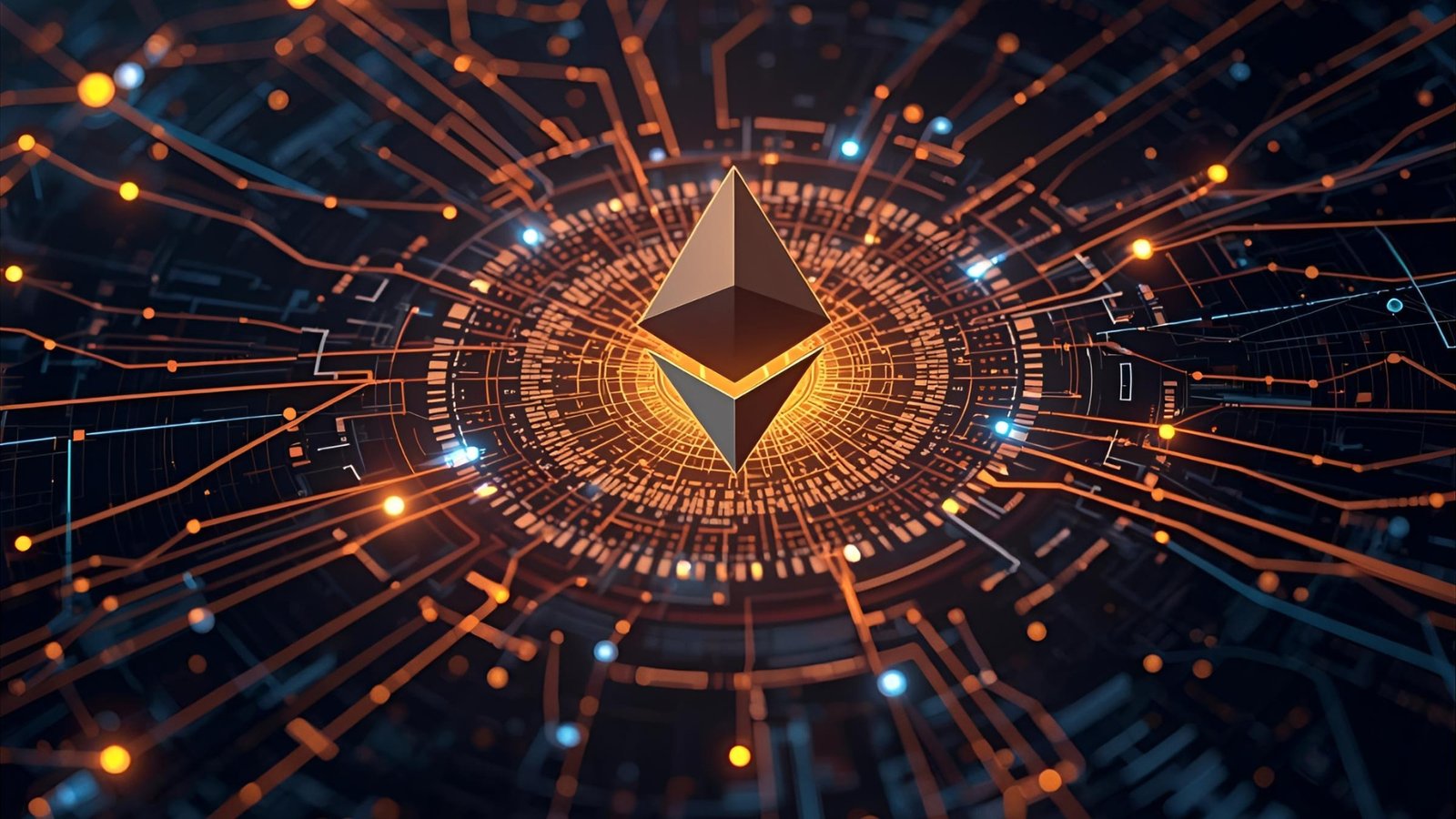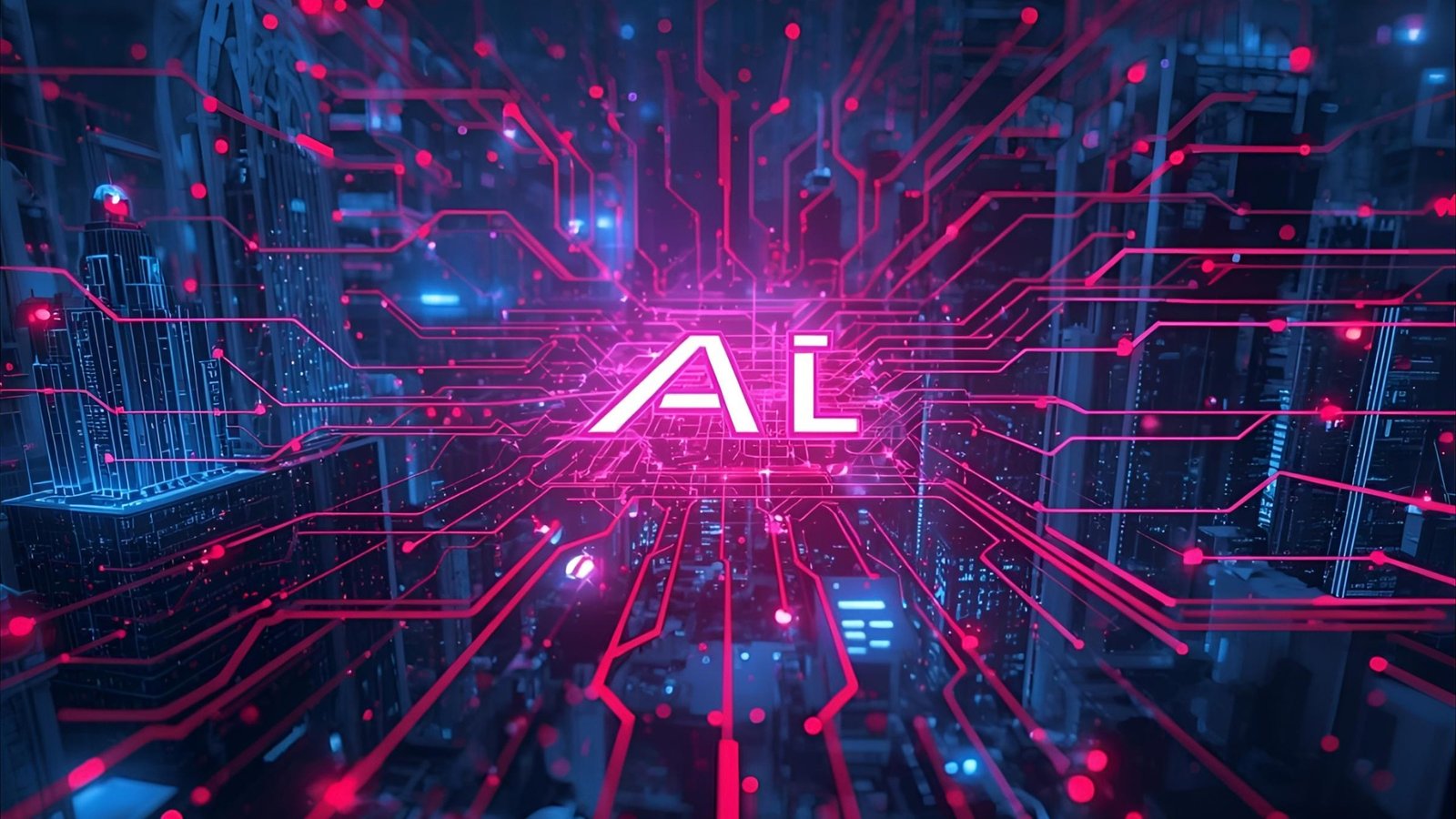The Ethereum Foundation AI Team emerges to create unprecedented connections between blockchain technology and Silicon Valley’s artificial intelligence ecosystem. This strategic initiative represents a pivotal moment in the evolution of decentralized technologies, positioning Ethereum at the forefront of the AI-blockchain convergence that industry experts predict will define the next decade of technological advancement.
The formation of the Ethereum Foundation AI Team signals a bold move to bridge two of the most transformative technologies of our time. As artificial intelligence continues to reshape industries worldwide, Ethereum’s leadership recognizes the immense potential that lies at the intersection of blockchain and AI technologies. This initiative aims to foster collaboration, drive innovation, and establish new standards for leveraging artificial intelligence capabilities in decentralized systems.
With Silicon Valley’s tech giants increasingly exploring blockchain applications and crypto companies expanding into AI territories, the Ethereum Foundation AI Team positions itself as a crucial catalyst in this technological fusion. The team’s mission extends beyond simple integration, focusing on creating sustainable frameworks that will benefit both blockchain developers and AI researchers while maintaining Ethereum’s core principles of decentralization and openness.
The Strategic Vision Behind Ethereum’s AI Initiative
The Foundation’s Commitment to Technological Evolution
The Ethereum Foundation AI Team represents more than just another corporate initiative—it embodies a fundamental shift in how blockchain organizations approach emerging technologies. Ethereum’s leadership has consistently demonstrated their commitment to staying ahead of technological curves, from the successful transition to Proof of Stake consensus to the ongoing development of Layer 2 scaling solutions.
This AI-focused team builds upon Ethereum’s established reputation as an innovation leader in the blockchain space. The foundation’s decision to formally establish an AI team reflects their that artificial intelligence will play an increasingly important role in blockchain development, smart contract optimization, and decentralized application functionality.
The strategic vision encompasses several key areas: enhancing smart contract capabilities through AI integration, developing AI-powered tools for blockchain developers, creating bridges between traditional AI research and decentralized systems, and fostering partnerships with Silicon Valley’s leading AI companies. These objectives align with Ethereum’s broader mission of building a more open and accessible digital economy.
Silicon Valley’s Growing Interest in Blockchain Technology
Silicon Valley’s tech ecosystem has undergone a significant shift in perspective regarding blockchain technology over the past few years. What once was viewed with skepticism by traditional tech companies has evolved into active exploration and investment. The Ethereum Foundation AI Team arrives at a time when this interest has reached a critical mass, with major Silicon Valley players actively seeking blockchain partnerships and integration opportunities.
Companies like Meta, Google, and Apple have all made significant investments in blockchain research and development. This growing acceptance has created fertile ground for collaboration between established AI researchers and blockchain innovators. The Ethereum Foundation’s new team is perfectly positioned to capitalize on this convergence, offering a bridge between two previously disparate technological communities.
The timing of this initiative coincides with increased regulatory clarity around blockchain technologies and growing institutional adoption of cryptocurrencies. These factors have made Silicon Valley companies more willing to engage with blockchain projects, creating unprecedented opportunities for meaningful collaboration between AI researchers and blockchain developers.
Core Objectives and Mission of the Ethereum Foundation AI Team

Fostering Cross-Industry Collaboration
The primary mission of the Ethereum Foundation AI Team centers on creating meaningful connections between blockchain developers and artificial intelligence researchers. This collaboration extends beyond simple networking, focusing on developing concrete projects that demonstrate the practical benefits of integrating AI and blockchain.
The team’s approach involves establishing formal partnership programs with Silicon Valley AI companies, creating research grants for projects that explore the convergence of AI and blockchain, and developing open-source tools that facilitate easier collaboration between AI researchers and Ethereum’s ecosystem. These initiatives aim to break down the traditional barriers that have separated blockchain and AI communities.
Furthermore, the AI team is working to establish educational programs that help blockchain developers understand AI capabilities while simultaneously teaching AI researchers about the unique properties and potential applications of decentralized systems. This bidirectional knowledge transfer is crucial for developing truly innovative solutions that capitalize on the strengths of both technologies.
Advancing Technical Integration Standards
Beyond fostering collaboration, the Ethereum Foundation AI Team is actively working to establish technical standards for AI-blockchain integration. This involves developing APIs that allow AI systems to interact seamlessly with Ethereum smart contracts, creating frameworks for decentralized AI model training, and establishing security protocols for AI-powered decentralized applications.
The team’s technical focus includes optimizing gas costs for AI-related computations on Ethereum, developing efficient data structures for storing AI model parameters on-chain, and creating tools that allow developers to deploy AI models as decentralized services. These technical contributions aim to make Ethereum the preferred platform for AI-powered decentralized applications.
Additionally, the AI team is exploring the potential for using Ethereum’s consensus mechanisms to create trustless AI systems. This research could lead to breakthrough applications in areas such as decentralized autonomous organizations powered by AI, transparent AI decision-making systems, and blockchain-verified AI training processes.
Key Areas of Focus for AI-Blockchain Integration
Smart Contract Enhancement Through Artificial Intelligence
One of the most promising areas of exploration for the Ethereum Foundation AI Team involves using artificial intelligence to enhance smart contract functionality. Traditional smart contracts operate on predetermined logic, but AI integration could enable dynamic, adaptive contract behavior that responds to changing conditions and learns from past executions.
The team is investigating how machine learning algorithms can be embedded within smart contracts to create more sophisticated automated systems. This could include contracts that adjust their parameters based on market conditions, automatically optimize their gas usage, or detect and respond to potential security threats in real-time.
AI-enhanced smart contracts could revolutionize numerous industries, from decentralized finance to supply chain management. The Ethereum Foundation AI Team is working to ensure that these advanced capabilities remain accessible to developers while maintaining the security and transparency that make blockchain technology valuable.
Decentralized AI Model Training and Deployment
The concept of decentralized AI represents one of the most exciting frontiers in the convergence of blockchain and artificial intelligence. The Ethereum Foundation AI Team is exploring how Ethereum’s network could be used to create distributed systems for training and deploying AI models, potentially democratizing access to advanced AI capabilities.
Traditional AI development is dominated by companies with massive computational resources, creating barriers for smaller organizations and individual researchers. By leveraging Ethereum’s decentralized network, the AI team aims to create systems where computational resources can be shared across the network, allowing for more democratic participation in AI development.
This approach could lead to the development of decentralized AI marketplaces where users can access AI models without relying on centralized service providers. The Ethereum Foundation’s involvement ensures that these systems will be built with openness and accessibility as core principles, potentially transforming how AI services are delivered and consumed.
Privacy-Preserving AI Applications
Privacy concerns represent one of the most significant challenges in modern AI development. The Ethereum Foundation AI Team is exploring how blockchain technology’s cryptographic foundations can be leveraged to create AI systems that protect user privacy while still providing valuable insights and services.
The team is investigating applications of zero-knowledge proofs in AI systems, allowing for model training and inference without revealing sensitive data. This research could enable privacy-preserving AI applications that operate on Ethereum while maintaining complete data confidentiality for users.
These developments could be particularly valuable in healthcare, financial services, and other sensitive domains where AI could provide significant benefits but privacy concerns have limited adoption. The Ethereum Foundation’s focus on privacy-preserving solutions aligns with the broader blockchain community’s commitment to user sovereignty and data protection.
Strategic Partnerships and Silicon Valley Connections
Building Bridges with Tech Giants
The Ethereum Foundation AI Team is actively pursuing strategic partnerships with Silicon Valley’s leading technology companies. These relationships aim to create mutually beneficial arrangements where traditional tech companies can leverage Ethereum’s decentralized infrastructure while contributing their AI expertise to blockchain development.
Initial partnership discussions have focused on companies with existing blockchain interests, such as Microsoft, which has made significant investments in Ethereum through its Azure cloud platform. The AI team is working to expand these relationships to include pure-play AI companies that may not have previous blockchain experience but could benefit from decentralized infrastructure.
These partnerships could result in hybrid AI-blockchain solutions that combine the scalability and resources of traditional tech companies with the transparency and decentralization of blockchain systems. The Ethereum Foundation sees these collaborations as essential for mainstream adoption of AI-blockchain integration technologies.
Venture Capital and Investment Ecosystem
Silicon Valley’s venture capital ecosystem has shown increasing interest in companies operating at the intersection of AI and blockchain. The Ethereum Foundation AI Team is working to connect blockchain startups with appropriate investors and to help traditional AI companies understand the potential of blockchain integration.
The team has established relationships with prominent venture capital firms that have both AI and blockchain investment portfolios. These connections help facilitate funding for promising projects while ensuring that investors understand the unique value propositions that emerge from AI-blockchain convergence.
Furthermore, the AI team is working to establish dedicated funding pools for research projects that explore novel applications of AI in blockchain systems. This funding aims to support both academic research and practical development projects that could lead to breakthrough applications.
Technical Challenges and Solutions
Scalability and Performance Optimization
One of the primary technical challenges facing AI-blockchain integration involves the computational intensity of AI operations and the current limitations of blockchain throughput. The Ethereum Foundation AI Team is working on several approaches to address these scalability concerns while maintaining the security and decentralization that make blockchain valuable.
The team is exploring Layer 2 solutions specifically designed for AI workloads, including optimistic rollups that can handle machine learning computations off-chain while still benefiting from Ethereum’s security guarantees. These solutions could enable complex AI operations to occur at much higher throughput than would be possible on the main Ethereum network.
Additionally, the AI team is investigating how emerging Ethereum improvements, such as sharding and state rent, could be optimized for AI-related use cases. This research aims to ensure that future Ethereum upgrades provide adequate support for the computational requirements of advanced AI applications.
Data Storage and Management Solutions
AI systems typically require large amounts of training data and model parameters, creating challenges for blockchain-based storage. The Ethereum Foundation AI Team is developing innovative approaches to data management that balance the need for decentralized storage with the practical requirements of AI systems.
The team is exploring integration with decentralized storage networks like IPFS and Arweave, creating hybrid architectures where AI model parameters and training data can be stored off-chain while maintaining cryptographic links and verification through Ethereum smart contracts. This approach could enable decentralized AI systems that don’t suffer from the storage limitations of traditional blockchain architectures.
Furthermore, the AI team is investigating compression techniques and efficient encoding methods that could reduce the on-chain storage requirements for AI-related data. These technical innovations aim to make blockchain-based AI applications more practical and cost-effective for real-world deployment.
Industry Impact and Future Implications
Transforming Decentralized Finance Through AI
The integration of artificial intelligence with decentralized finance (DeFi) represents one of the most immediate and impactful applications of the Ethereum Foundation AI Team’s work. AI-powered DeFi protocols could provide more sophisticated risk assessment, automated trading strategies, and dynamic pricing mechanisms that respond to market conditions in real-time.
The AI team is working with DeFi developers to create frameworks for incorporating machine learning models into financial protocols. This could lead to AI-enhanced DeFi platforms that offer more personalized and efficient financial services while maintaining the transparency and accessibility that make DeFi valuable.
These developments could significantly expand the appeal of decentralized finance by making it more user-friendly and efficient. AI-powered interfaces could help users navigate complex DeFi ecosystems, while predictive models could help protocols manage risk more effectively and offer better returns to users.
Revolutionizing Digital Identity and Verification
The combination of AI and blockchain technology offers unique opportunities for creating more secure and efficient digital identity systems. The Ethereum Foundation AI Team is exploring how AI-powered identity verification can be combined with blockchain-based identity management to create systems that are both highly secure and user-friendly.
AI-enhanced identity systems could use machine learning to detect fraudulent behavior and authenticate users without requiring extensive personal information disclosure. When combined with Ethereum’s decentralized identity standards, these systems could provide users with unprecedented control over their personal data while maintaining high security standards.
This work could have significant implications for numerous industries, from healthcare to financial services, where secure identity verification is essential but current systems often require users to sacrifice privacy for security. The Ethereum Foundation’s approach aims to demonstrate that these trade-offs are not necessary when AI and blockchain technologies are properly integrated.
Enabling New Forms of Decentralized Governance
The Ethereum Foundation AI Team is also investigating how artificial intelligence can enhance decentralized governance systems. AI-powered analysis tools could help DAO members make more informed decisions by analyzing proposals, predicting outcomes, and identifying potential issues before they become problems.
These AI-enhanced governance systems could make decentralized organizations more efficient and effective while maintaining democratic participation. Machine learning models could help identify the most relevant stakeholders for particular decisions, optimize voting mechanisms, and provide real-time analysis of governance proposals.
The implications of this work extend beyond cryptocurrency and blockchain projects to any organization interested in decentralized decision-making. The AI team’s research could provide blueprints for more democratic and efficient organizational structures across numerous industries and applications.
Challenges and Considerations
Ethical Implications of AI-Blockchain Integration
The Ethereum Foundation AI Team recognizes that the integration of AI and blockchain technologies raises important ethical considerations that must be carefully addressed. The combination of AI’s potential for bias and discrimination with blockchain’s immutability creates unique challenges that require thoughtful solutions.
The team is working to establish ethical guidelines for AI-blockchain integration that ensure these systems promote fairness, transparency, and accessibility. This includes developing tools for detecting and mitigating bias in AI models deployed on blockchain networks and creating frameworks for ensuring that AI-powered blockchain applications serve the interests of all users, not just those with technical expertise or significant resources.
Furthermore, the AI team is collaborating with academic researchers and ethicists to explore the long-term implications of decentralized AI systems. This research aims to ensure that the convergence of these technologies contributes to a more equitable and just digital economy rather than exacerbating existing inequalities.
Regulatory and Compliance Considerations
As both AI and blockchain technologies face increasing regulatory scrutiny, the Ethereum Foundation AI Team must navigate complex compliance requirements across multiple jurisdictions. The team is working proactively with regulators and policymakers to ensure that AI-blockchain integration develops in a way that meets legitimate regulatory objectives while preserving the innovative potential of these technologies.
The AI team is participating in industry working groups focused on developing appropriate regulatory frameworks for AI-blockchain applications. This involvement helps ensure that regulations are informed by technical realities and don’t inadvertently stifle beneficial innovation.
Additionally, the team is developing compliance tools and best practices that help developers create AI-blockchain applications that meet regulatory requirements from the outset. This proactive approach aims to reduce uncertainty and encourage broader adoption of these integrated technologies.
Also Read: Blockchain Trading Strategies for Beginners Complete Guide 2025
Looking Ahead The Future of AI-Blockchain Integration

Emerging Opportunities and Use Cases
The work of the Ethereum Foundation AI Team is opening up numerous new opportunities for innovative applications that leverage both AI and blockchain technologies. These include decentralized AI marketplaces, blockchain-verified AI training systems, and AI-powered decentralized autonomous organizations that could operate with minimal human intervention.
The team is also exploring more speculative applications, such as using blockchain consensus mechanisms to create more trustworthy AI systems and leveraging AI to optimize blockchain network performance. These advanced AI-blockchain applications could represent the next frontier in both technologies’ evolution.
As these systems mature, they could enable entirely new business models and organizational structures that were not possible with either AI or blockchain alone. The Ethereum Foundation’s early investment in this convergence positions the Ethereum ecosystem to be at the forefront of these developments.
Building a Sustainable Innovation Ecosystem
The Ethereum Foundation AI Team is not just focused on immediate technical achievements but is working to build a sustainable ecosystem that will continue to drive innovation at the intersection of AI and blockchain technologies. This includes developing educational programs, creating funding mechanisms for research projects, and establishing standards that will guide future development.
The team’s long-term vision involves creating a self-sustaining community of developers, researchers, and entrepreneurs who are working on AI-blockchain integration projects. This community would continue to push the boundaries of what’s possible even as the specific technologies and applications evolve.
By focusing on ecosystem building rather than just individual projects, the Ethereum Foundation aims to ensure that the benefits of AI-blockchain integration will be broadly distributed and will continue to grow over time. This approach reflects the foundation’s commitment to creating public goods that benefit the entire blockchain and AI communities.
Conclusion
The formation of the Ethereum Foundation AI Team represents a watershed moment in the evolution of both blockchain and artificial intelligence technologies. By creating formal bridges between Ethereum’s vibrant ecosystem and Silicon Valley’s AI innovation centers, this initiative is positioned to accelerate the development of breakthrough applications that leverage the unique strengths of both technologies.
The AI team’s comprehensive approach, spanning technical development, partnership building, and ecosystem creation, demonstrates the Ethereum Foundation’s commitment to remaining at the forefront of technological innovation. As AI and blockchain technologies continue to mature and converge, the groundwork being laid by this team will likely prove invaluable for developers, researchers, and entrepreneurs working to create the next generation of digital applications.

